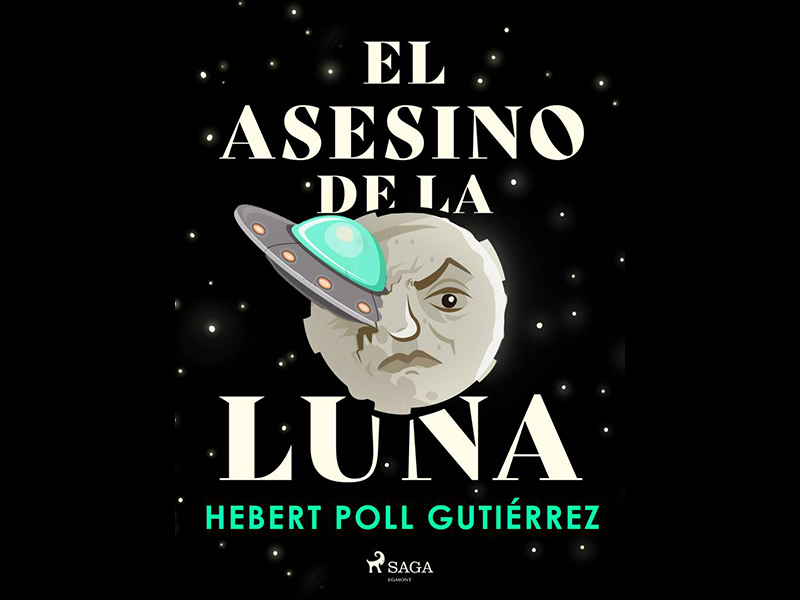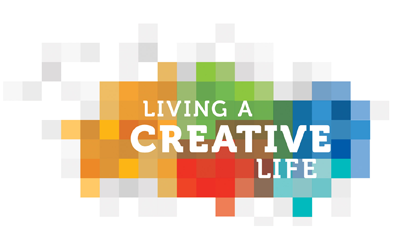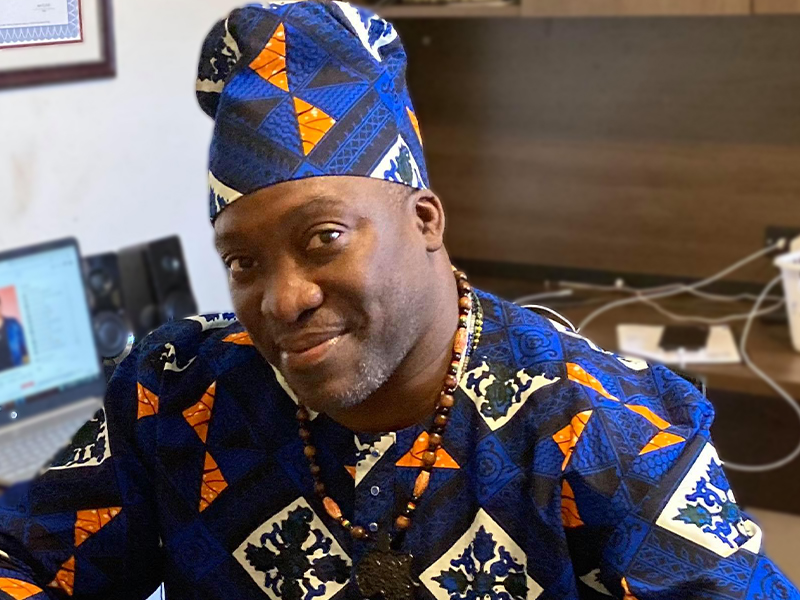Hebert Poll Gutiérrez
Hebert Poll Gutiérrez’s Creative Life
Hebert Poll Gutiérrez is a Calgary poet, playwright, writer and aspiring filmmaker who grew up in Matanzas, Cuba, the child of artists, prior to relocating to Calgary in 2020 during the middle of the pandemic. He may have switched hemispheres, but he made sure to bring his creative life with him.
His parents wouldn’t have wanted it any other way. “My mother was a poetry and essay writer and a modern dance teacher,” he says. “And my father was a historian, ethnologist and essay writer in my hometown of Matanzas, Cuba. Creativity was a patient and loving process my parents passed on to me.
“Initially, my creativity was a game,” he says, “but then it became a serious game I still use to shape realities.”
His first published book (of nine) paid tribute to the ways in which stories can shape our world in amazing ways. As a child, Poll Gutiérrez used to drift off to sleep listening to stories his mother made up — but never quite finished. In 2004, he wrote the endings and it became a book of stories called Emi laara: little stories to dream.
“It’s a short story book for young people and adults who sometimes behave like children, which defends and promotes Afro-Cuban culture,” he says. “It was published in 2004 by Matanzas Publishing House, a small Cuban publisher. It is an extraordinary book because I wrote it with my mother, an exceptional person who used to put me to sleep reading these stories but never finished them.
“My mother sacrificed her artistic career to raise me,” he says. “I finished the book years later. So more than a book, it is a way of defending my cultural identity, and at the same time, it is a tribute to my mother.”
Emi laara: little stories to dream — which Poll Gutiérrez has adapted as a blend of theatre, film and digital animation — was the launching point for a creative life that has spanned close to two decades, spread across a range of artistic disciplines. Poll Gutiérrez has also adapted another book, Cuba que linda es Cuba? Confessions of a fearless Cuban, published during the pandemic with Primigenios in Miami. He says it denounces some latent issues on the island (racial discrimination, bureaucracy, psychological mistreatment, police abuse). “The project does not criticize for the sake of criticizing,” he adds. “It is a revelation of that secret, invisible Cuba… that does not appear in the newspapers.” He says both projects were made possible through grants from Calgary Arts Development.
Stories Shape Realities
In addition to nine books of poetry and stories, Poll Gutiérrez has written a number of plays and hundreds of poems. For him, they’re all connected by a love of language and storytelling.
“I don’t see poetry, prose, film and theatre as opposing genres,” he says. “They are very effective storytelling tools. But no matter which one I use to tell my stories, my projects will always be my cultural strategy to shape realities.”

The Power of Comedy
Poll Gutiérrez is a gregarious personality, passionate about the power of language and the need to build community, particularly in the aftermath of the pandemic, when he and his wife, who’s a painter, arrived in Alberta. One of his upcoming projects is a graphic novel called The Moon Killer “that will tell the world what happened when Pluto was expelled from the solar system for not having money and being black.”
“It’s about racial discrimination in outer space,” he says. “It’s comedy, because I think with comedy, you can say a lot. (With good stories), it’s not always just cry, cry, cry for 45 minutes — you need to find a balance. You can tell so many stories that you can’t tell with a drama.
“Especially,” he adds, “I came from Cuba, and we would use comedy to escape from censorship.”
He is working on adapting The Moon Killer as a multimedia play with puppets created by members of the Michtlans Arts and Research Group, a Mexican Collective of Performance Arts and Artistic Research based in Calgary. “They are Mexicans,” he says, “but live in Calgary. We worked together in another show called Blue Madness about racial discrimination in Cuba and they made the puppets that time, so that is why I wanted to work with them, because even though they are Mexican, the Mexican people, we have so many common problems.
“The same people, the same traditions, the same stories — so I am going to present with them, in the Festival of Animated Objects, with Blue Madness.”
Triple Cultural Identity
His latest work, a book of poems, Whispers from the Black Gods, is built around the orishas, a Yoruba spirit from west Africa that pays homage to Poll Gutiérrez’s African roots. “Whispers from the Black Gods means my gratitude to my Black gods or orishas for giving me health and wisdom to continue sharing my art,” he says. “The orishas, or Afro-Cuban gods, are the legacy of my African ancestors (mainly from Nigeria), who were brought to Cuba as slaves. They mixed their African deities or gods with the Roman Catholic saints, originating the orishas to preserve their religious beliefs. The book is an instrument to share the authentic Afro-Cuban culture, which sometimes is distorted by the media. But above all, it is a way to defend my triple cultural identity: as an artist, Cuban and Afro-descendant.”
Alberta
Poll Gutiérrez now finds himself living far from the roots of those Yoruba spirits, in southern Alberta — and what he has discovered over the past two years in Calgary is an emerging arts community trying to absorb and amplify and share the creative lives of storytellers from around the planet.
“Living in Canada allows you to write about many topics for a diverse and culturally different audience,” he says. “Calgary is in the process of becoming a multicultural place. Some cultural institutions have accepted my projects, but I had some creative differences with others when they didn’t accept my projects and told me, ‘I’m sorry, we are looking for projects which reflect the authentic Canadian culture.
“This gives you the idea that we still need to keep working without hatred, looking for common ground between different cultures. In other words,” he says, “Calgary needs to build more cultural bridges and fewer walls.”
Why does it matter to live a creative life?
“I came from Cuba,” he says, “A place with so many problems where creativity was first my instrument to survive, and then it became part of me. You don’t have to be an artist to live a creative life. Every day is an opportunity to be creative and to do things differently. Being creative is a strategy to continue being human.
“All human beings must find a way to be creative to fight against the routine,” he adds. “Everyday I try to apply to my life as an artist and human being the following Albert Einstein quote: Creativity is intelligence having fun.”
About the Storytelling Project
The Storytelling Project raises awareness about Calgarians who, by living creative lives, are making Calgary a better city, effecting positive change and enriching others’ lives.
Have a story to share? Email us at submissions@calgaryartsdevelopment.com.

